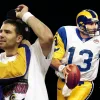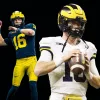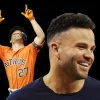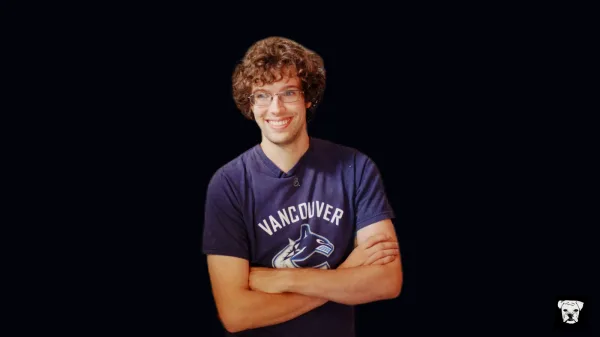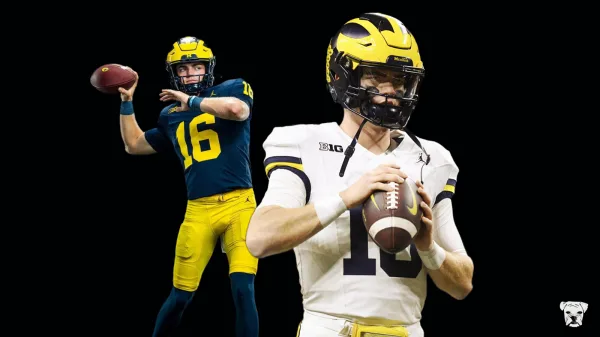Daniel Nava’s high school coach saved the ball from his first Varsity hit. Not as a souvenir, but because he was certain it’d be the only one he’d ever get.
At just 4’8” and 70 pounds as a high school freshman, he looked like a middle schooler who wandered onto the wrong field.
“Everybody said he was too small, too slow, wasn’t fast enough, didn’t have enough power,” his dad, Don, said.
After riding the bench as a high school junior, Nava got his first chance to start for the Varsity team as a senior.
“When I did play, I was just so small, so I didn’t do very well,” he told ESPN.
By his senior season, he’d grown to about 5’5” and was mostly a defense-first center fielder. While he batted ninth in the order, the team often pinch-hit for him.
The highlight of that season was when he hit a ball over what he described as a “3-foot fence.”
“I was really sprinting around the bases. I’d never hit a home run before. I never knew what it felt like.”
He finished his senior year batting .270. Good, but not good enough to get college looks.
So after graduation, he went to Santa Clara University to major in psychology and walk on to the baseball team.
In the fall, he went to an open tryout, hoping his summer growth spurt would be enough to make an impression.
“He was about 5-foot-8 and 135 pounds,” said then-head coach Mark O’Brien. “He showed up, and he could barely hit the ball out of the infield.”
After getting cut, Daniel was ready to quit for good.
“I wasn’t thinking about anything in terms of a baseball career,” he said.
“I thought I was done…When you get cut – and Santa Clara had a struggling program, a new coach, they were trying to turn things around – I thought, if I can’t be a part of a rebuilding program, I gotta be realistic. I’m done.”
But Coach O’Brien liked his attitude, so he offered him a chance to stay on as the team’s equipment manager.
Nava helped out wherever he could: fetching water, keeping the book, shagging fly balls at batting practice, and washing uniforms in the middle of the night.
“During that whole time, I’m thinking to myself, ‘Why am I doing this?’ We were in Hawaii one time, and I’m sitting there washing uniforms at 3 or 4 a.m. I’m like, I should be enjoying Hawaii.”
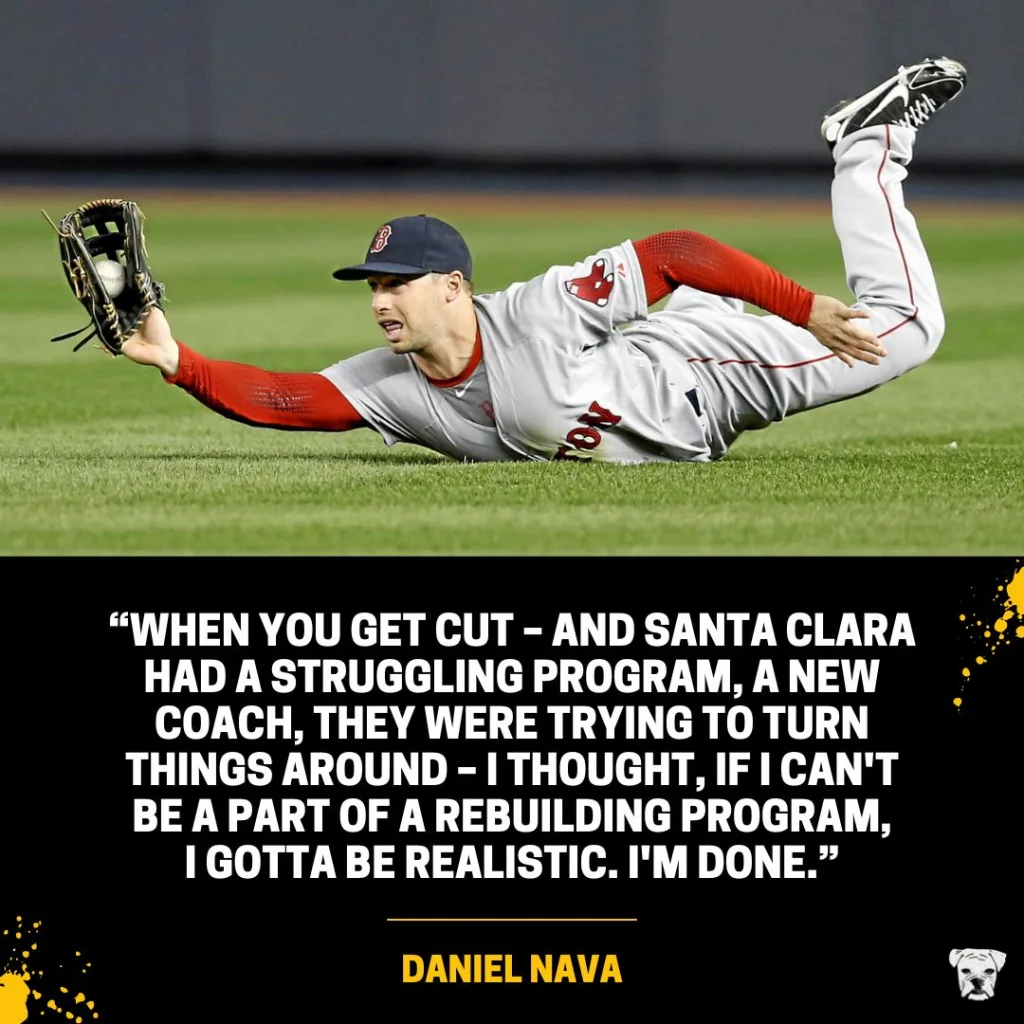
One night, after a road game against Pepperdine, Nava piled the team’s dirty uniforms into a few duffel bags and took a cab to a laundromat.
But the place closed before he could finish up. Suddenly, he was wandering the streets of Ingelwood, California, with bags full of half-dirty baseball pants.
“This cop, kind of a rent-a-cop, comes by, and he’s like, ‘Hey, what are you doing?’” he told The Providence Journal.
“I was like, ‘I just called a cab. I need a cab to take me back to the hotel.’ He was like, ‘Um, actually, I think I’m going to stay here and hang out with you.’”
“I was like, ‘What do you mean?’ He was like, ‘Well, let’s just say that this town has a lot of drive-bys…so if I’m with you, you do the math.’”
“I was like, ‘Hey, buddy! How’s it going!’, putting my arm around him – ‘You’re my best friend, man!’”
Another part of Daniel’s job was filming pitchers and hitters in games.
During those late nights doing laundry, he found himself poring over the footage.
“I learned a lot about pitches and approach and what to look for and what not to look for. It sounds weird, but I did learn a lot from that.”
Little did he know that those film sessions would pay off later.
During his sophomore year at Santa Clara, the tuition was becoming too expensive to afford.
So Nava transferred to the nearby College of San Mateo – a local community college that was much friendlier on his wallet.
One day at the gym, an old friend convinced him to try out for San Mateo’s baseball team. By then, he’d grown to 5’10” and was starting to fill out his frame.
This time, Daniel made the final cut. Even still, he didn’t expect to play.
But to his surprise, the coach gave him a shot.
After cracking the starting lineup, he hit .430 and .384 in two seasons, earning JUCO All-American honors and helping the team win back-to-back conference titles.
Nava still had another year of eligibility left, and that’s when his old friends at Santa Clara called.
They didn’t just offer him a spot on the team – they gave him a scholarship.
Just like that, the Broncos’ former equipment manager returned as the team’s starting left fielder.
Remembering all those late nights studying pitchers, Nava put his knowledge to work at the plate. He led the West Coast Conference with a .395 batting average and a .494 on-base percentage.
Oh yeah, and all those times shagging pop-ups during batting practice? They paid off, too.
He didn’t make a single error in the outfield in his senior year.
But when the MLB Draft rolled around, his phone stayed silent.
Instead, he showed up at a tryout for the Chico Outlaws of the independent Golden Baseball League.
After an underwhelming showing, they cut him.
“So I didn’t play for a whole year. I was trying to get picked up, trying anything to play somewhere. But every door got shut.”
Then, after a year away from baseball, his phone finally rang. It was the Chico Outlaws circling back.
“They called me up and told me that one of their players wasn’t able to make it out, so if I wanted a chance to play – I wasn’t even guaranteed a shot – that I could cruise on up there and try out for the team.”
“If they would have called me an hour later, it wouldn’t have happened,” Nava said.
“That day, I was planning on heading to the beach with my friends and wouldn’t have heard the phone. But I packed up my stuff on the spot and headed up to Chico the same day.”
This time, the Outlaws kept him around. In his first year swinging a wooden bat, he hit .371 and won MVP of the Golden League.
Baseball America ranked Nava at the very top of their 2007 indy league prospect list, which he didn’t believe at first.
“I got a call from the pitching coach at Chico…saying, ‘Hey man, did you see the article in Baseball America?’ I had no clue what he was talking about. ‘You’re the No. 1 [indy] prospect,’ he told me.”
“I thought it was a joke, so I told him to shut up and stop playing around with me. He was serious, but I really didn’t believe him for about five minutes…Finally, he said, ‘Navs, I’m not messing around with you – go to the website, call them up, do whatever you have to do, and you’ll see that I’m telling the truth.’ Finally, I saw the article, but nothing happened for a couple of weeks.”
Eventually, the article made its way to the desk of Jared Porter from the Boston Red Sox.
He later bought Nava’s rights for $1 – the lowest amount possible for an MLB team to purchase a contract.
Yes, 100 pennies is all it cost a $4.8 billion franchise to acquire him. Of course, they did owe the Outlaws another $1,499 once Nava made it through spring training.
He dominated each level of the minor leagues from 2008 to 2010, batting a combined .331 from Single-A through Triple-A.
“I’ve always been told ‘you need to prove it at the next level.’ I think that has a lot to do with why what I’ve done has been kind of under-the-radar.”
In June of 2010, the Red Sox called him up to the big leagues.
From there, things unfolded quickly.
Rushing to see their son’s MLB debut in person, Daniel’s parents hit a snag at the airport.
After their flight was delayed, their luggage was too slow to arrive. So instead of missing the start of the game, they ditched their bags and headed straight to Fenway Park.
They got to their seats just as their son was running out to take his position in left field.
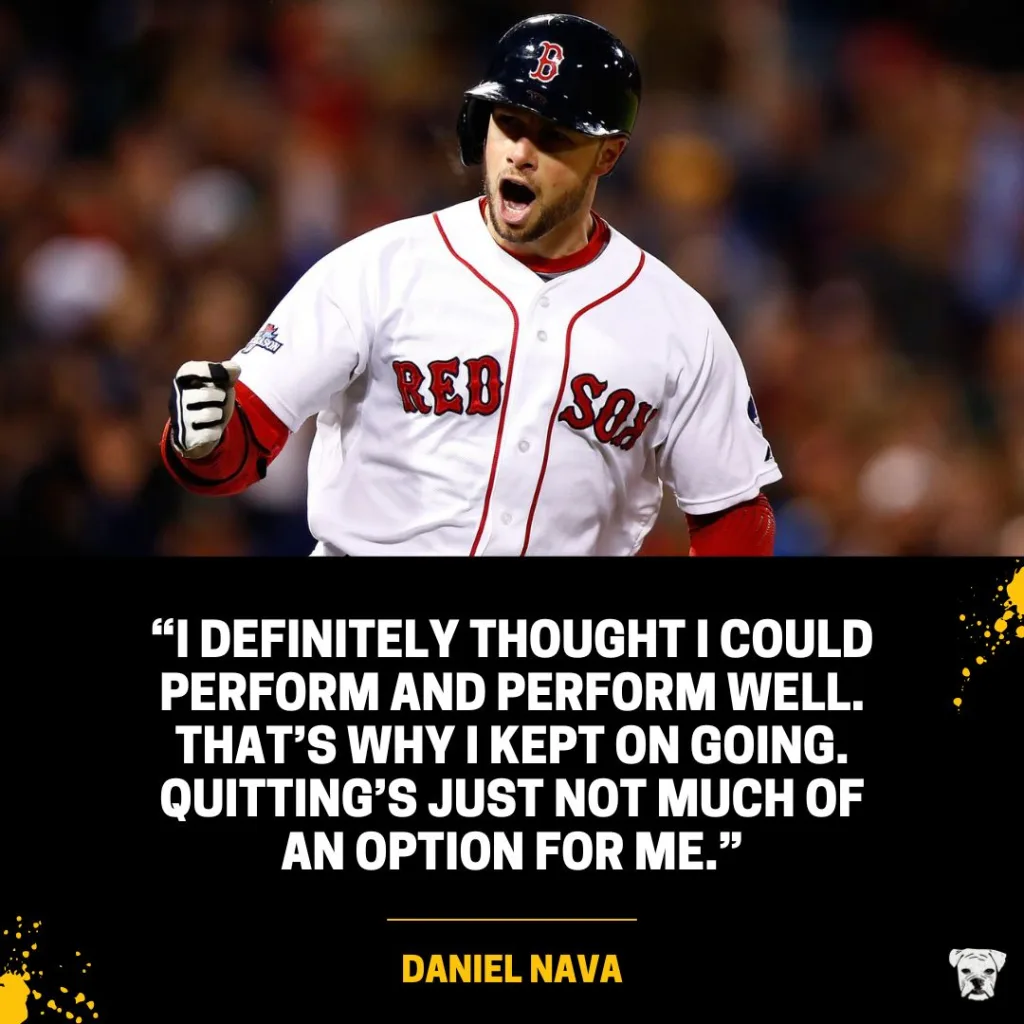
In the second inning, Nava was gearing up for his first major league at-bat.
Before heading out to the on-deck circle, he turned to then-Red Sox manager Terry Francona.
“I wonder where my folks are sitting,” he said to the manager.
“I don’t care,” Francona said. “Go up and get a hit.”
Nava didn’t waste another second.
With the bases loaded, he launched the very first pitch he saw into the right-field seats for a grand slam.
“As I was rounding the bases, I think that’s when I kind of said, ‘Oh man, I just hit a grand slam. That’s probably why I was sprinting the whole time, because I was so obviously pumped for that moment and that opportunity. It’s pretty ridiculous.”
With that swing, Nava became just the second player to ever hit a grand slam on the first pitch of his major league career.
A few innings later, Ken Rosenthal went up to interview Daniel’s parents about their son’s historic moment.
“I got [it on tape]…you know what? I don’t know if I got it or not,” Don Nava laughed.
“My hands were up in the air, I was in tears, I was smiling…I think the camera might’ve gotten the lady’s hair in front of me more than Daniel running around the bases.”
Nava reached base safely in each of his first 13 MLB games.
But after seeing action in 60 games in 2010, Boston designated him for assignment in 2011. After he went unclaimed, he was sent back to Triple-A Pawtucket.
In 2012, he wasn’t even invited to spring training. Still, he kept fighting.
“I definitely thought I could perform and perform well. That’s why I kept on going. Quitting’s just not much of an option for me.”
After injuries to Jacoby Ellsbury and Carl Crawford, Boston called up Nava to fill the void.
He played 88 games, drove in 33 runs, and won the Lou Gorman Award, given to the Red Sox minor leaguer “who has demonstrated dedication and perseverance in overcoming obstacles while working his way to the Major League team.”
The next season was the best of his career.
In 134 games, Nava hit .303 with 12 homers and 66 RBI, helping the Sox go from worst to first – from dead last in the AL East in 2012 to winning the World Series in 2013.
“You don’t script that stuff. It just happens…I honestly felt honored and blessed to be a part of it.”
After another two seasons in Boston, Nava spent time with the Rays, Angels, Royals, and Phillies before calling it a career.
The kid who was never expected to get more than one Varsity hit had accumulated 452 of them in the big leagues.
“Through the whole process, I tried not to look too far down the road,” he said, “because I’ve always had something in front of me. I had to make a team. I had to get in the lineup…Maybe it was a good thing to keep focused on smaller goals.”
In 2024, Nava was named the outfield coordinator for the Dodgers’ minor league system.
Someday, he hopes to become an MLB manager.
“The journey I’ve taken is so unique, I think I have a lot to offer…I’ll obviously never have all the answers. But I think I do have something that can help them with motivation and inspiration.”
Want more inspiring sports stories like this? Join 24,000+ weekly readers on my free Underdog Newsletter 👇



